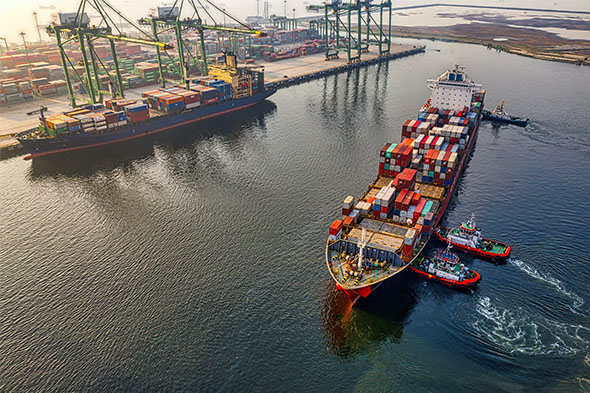Maritime transportation, also known as shipping or sea transport, involves the movement of goods, passengers, and commodities by water using various types of vessels. It is one of the oldest and most cost-effective modes of transportation, playing a critical role in global trade and commerce.

Maritime Transportation
Types of Vessels that Arvand can provide:
Container Ships: These ships transport standardized containers, facilitating efficient loading and unloading at ports.
Bulk Carriers: Arvand is designed to carry bulk cargo such as coal, ore, and grains without the need for packaging.
Tankers: Specialized for transporting liquid cargoes, including oil, chemicals, and liquefied natural gas (LNG).
Ports: Serve as key nodes in maritime transportation, where vessels load and unload cargo.
Global Shipping Routes: Connects countries and continents, enabling international trade and the movement of goods on a global scale.
Cost-Effectiveness: Shipping is often the most cost-effective mode of transporting large quantities of goods over long distances.
High Capacity: Large vessels can carry vast amounts of cargo, contributing to economies of scale.
This is a vital component of the global supply chain, facilitating trade, supporting economic development, and connecting nations through an extensive network of sea routes and ports. Advances in technology and sustainability practices continue to shape the future of the maritime industry.
